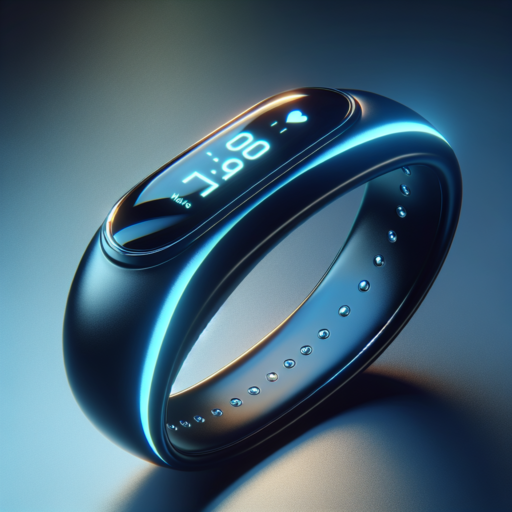Are wristband heart rate monitors accurate?
Wristband heart rate monitors have become a popular tool for athletes and fitness enthusiasts to track their heart rates during physical activity. These devices use optical sensors to measure the blood flow through the skin. However, questions about their accuracy persist. Factors such as skin perfusion, external light interference, and movement can all affect the readings provided by these monitors.
Impact of Motion on Accuracy
One of the main challenges that wristband heart rate monitors face is motion artifacts. When you move vigorously, the motion can disrupt the optical sensor’s ability to accurately detect your heart rate. Activities that involve intense hand and arm movements can lead to less reliable readings. Manufacturers are continually working on algorithms to minimize these errors, but it’s still a notable limitation.
Comparing with Chest Straps
When discussing the accuracy of wristband heart rate monitors, it’s important to compare them to chest strap monitors. Chest straps measure heart rate through electrical signals and are generally considered more accurate, particularly during high-intensity workouts. However, wristbands offer more comfort and convenience, leading many to prefer these despite potential sacrifices in precision.
The accuracy of wristband heart rate monitors can vary across different brands and models. Advances in technology are continually improving their reliability. Nevertheless, for individuals seeking the most precise heart rate data, especially during intense exercise, it might be beneficial to explore other monitoring devices or to use wristbands in conjunction with more accurate tools.
No se han encontrado productos.
What is the best wearable device to monitor your heart?
Identifying the best wearable device to monitor your heart depends on various factors including accuracy, comfort, and additional health tracking features. Wearable technology has advanced significantly, offering users comprehensive insights into their heart health.
Among the leaders in heart rate monitoring wearables, the Apple Watch Series stands out for its precision and wide range of health tracking functionalities. It not only monitors heart rate but also detects irregular heart rhythms and can initiate an emergency call if a sudden fall is detected. Its seamless integration with iPhones makes it a convenient option for Apple users.
Another notable contender is the Fitbit Charge Series. Renowned for its heart monitoring accuracy, it includes features like 24/7 heart rate tracking, sleep tracking, and a built-in GPS. The Fitbit Charge is a versatile option that caters to a wide audience, offering insights into physical activities and overall well-being.
Focusing on affordability and specialization, the Garmin Forerunner Series provides robust options for athletes and fitness enthusiasts. These devices offer precise heart rate measurements, advanced workout metrics, and long battery life, making them ideal for those prioritizing fitness tracking alongside heart health monitoring.
What is the most accurate wrist heart rate monitor?
Identifying the most accurate wrist heart rate monitor involves looking at several factors, including sensor technology, user feedback, and clinical validations. In the world of fitness and health monitoring, accuracy is paramount, especially when it involves heart rate tracking. Manufactures continually refine their technology to ensure their devices provide the closest readings to actual heart rates as measured through traditional methods.
Several models stand out for their precision and reliability. Devices that utilize advanced optical sensor technology, which works by shining light through the skin to measure blood flow, are at the forefront of this innovation. Moreover, the accuracy of a wrist heart rate monitor also depends on other factors like the fit of the device, the user’s skin type, and the intensity of the physical activity being monitored.
It’s also crucial to consider user experiences and expert reviews when determining which wrist heart rate monitor is the most accurate. Through a combination of real-world use cases and controlled tests, some brands consistently receive high marks for the precision of their heart rate tracking. However, it’s important to note that no wrist-based device can currently match the accuracy of a chest strap monitor, though the gap is steadily closing as technology improves.
Which band is best for heart rate monitor?
Choosing the best band for heart rate monitoring is vital for athletes, health enthusiasts, and anyone interested in tracking their physical health accurately. With the proliferation of wearable technology, several brands stand out for their precision, comfort, and connectivity.
Among the leading options, Fitbit has consistently been a frontrunner. Known for its user-friendly interface and reliable data tracking, Fitbit offers a range of bands that cater to various needs and preferences. Particularly, the Fitbit Charge 4 is often celebrated for its built-in GPS, heart rate monitoring, and extended battery life, making it an excellent choice for those who prioritize functionality and battery endurance.
Another noteworthy contender is Garmin. Renowned for its precision in health and fitness tracking, Garmin’s bands are equipped with advanced features that appeal to serious athletes and fitness buffs. The Garmin Vivosmart 4, for instance, not only tracks heart rate but also measures blood oxygen levels and provides detailed sleep analysis. This makes it an outstanding option for users who wish to monitor their health comprehensively.




